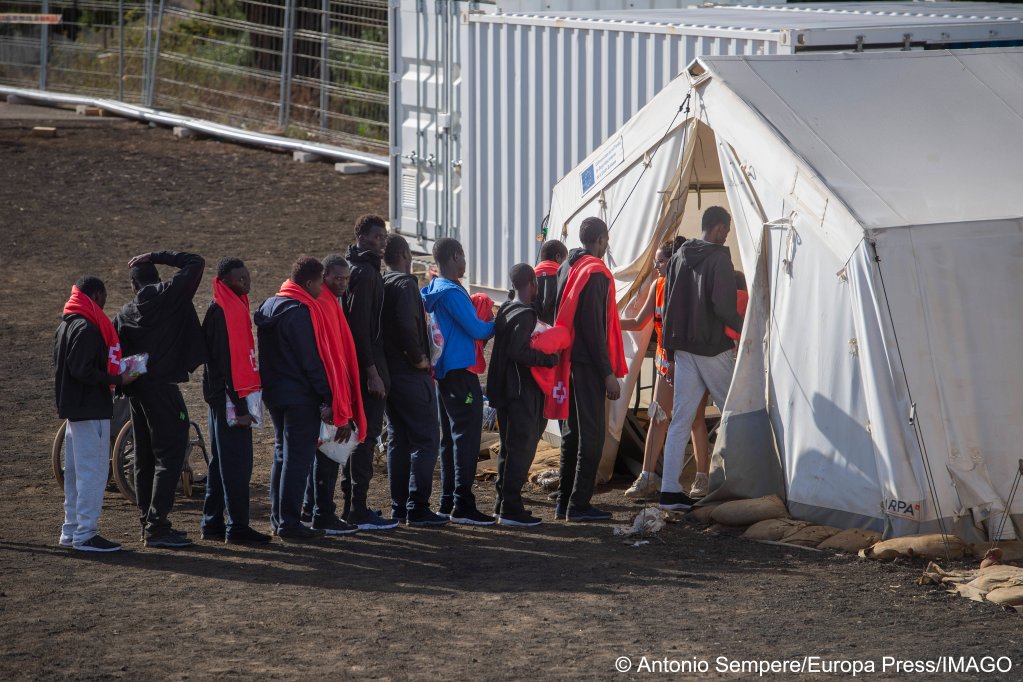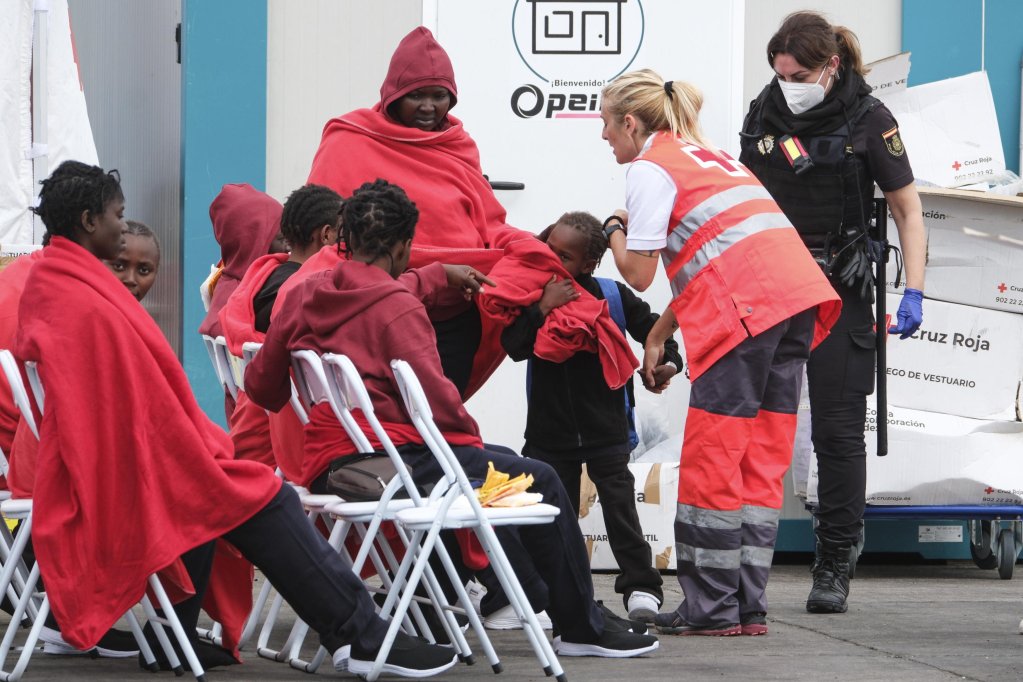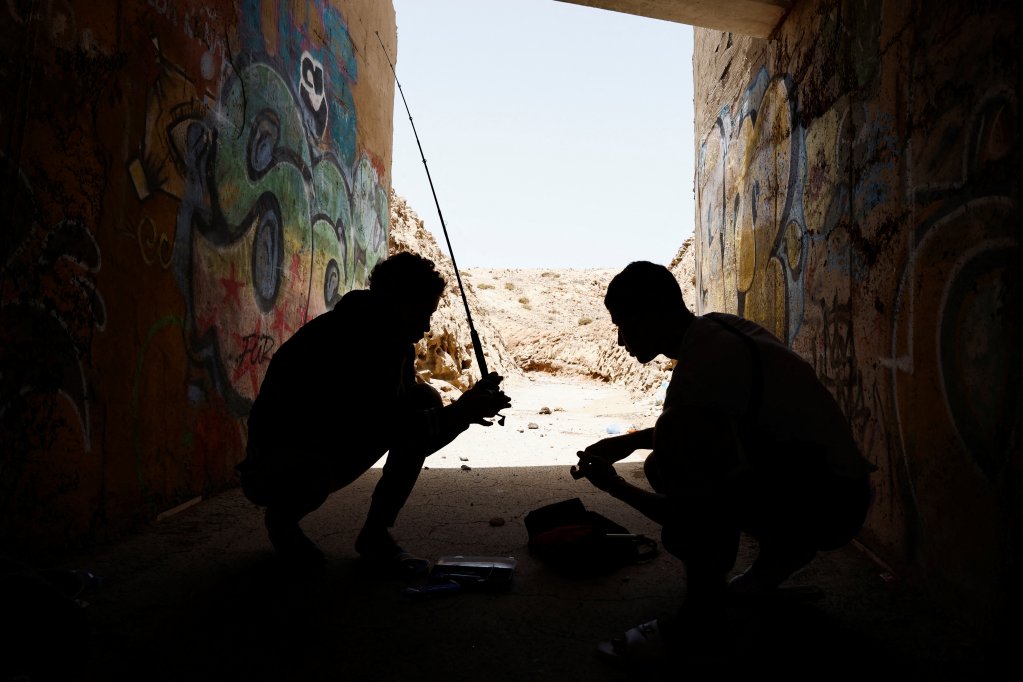Spain is beginning to relocate unaccompanied migrant minors from the Canary Islands to the mainland. Despite a Supreme Court order, implementation has been slow, and some regions have resisted, delaying or obstructing transfers even though they are legally required to accept the minors.
For months, the Canary Islands have been receiving an increasing number of migrants via the dangerous Atlantic "western route." In 2024 alone, nearly 46,000 migrants arrived by boat from West Africa, surpassing the 2023 record. Among them are thousands of unaccompanied minors, placing extreme strain on the islands’ reception system. The archipelago currently hosts 5,180 unaccompanied minors despite only having capacity for 900.
Read AlsoCanary Islands: 44 of 49 migrant stowaways apply for asylum
Supreme Court order triggers first transfers
On Monday, August 11, the Spanish government carried out its first official transfer under a Supreme Court order and a decree issued in March 2025. Ten minors -- nine from Mali and one from Senegal -- were flown from Las Palmas, Gran Canaria, to mainland Spain on a commercial flight. These children, previously housed in overcrowded reception centers, had requested transfer to other regions to continue their asylum applications.
They were accompanied by staff from organizations partnered with the state and by officials from the Ministry, as coordinated by the State Secretariat for Migration. The transfers aim to relieve pressure on the islands and comply with legal rulings that require the central government to provide assistance.
Ángel Víctor Torres Pérez, minister for territorial policy for the Canary Islands, wrote on X that with this first transfer, the Spanish Government is fulfilling its duty to the Canary Islands and furthermore its "duty to these children, who are under international protection due to the difficult situation in their country."
Read AlsoSpain: Government registers drop in Canary Island arrivals
Government plan and legal framework
The March decree introduced a mandatory system for distributing unaccompanied migrant minors among Spain’s autonomous communities when a region declares an emergency. "Emergency" is defined as exceeding triple the usual reception capacity -- a threshold the Canaries, along with Ceuta and Melilla, have far surpassed.

Distribution is based on objective criteria such as population, unemployment rate, and available reception places. Madrid, Valencia, and Andalusia have been identified as the regions most able to take in minors.
The government’s plan foresees two transfers per week, moving 15-20 minors each time, with coordination meetings every Tuesday between central and Canarian authorities. In the next six months, up to 1,200 minors are expected to be relocated, around 90 percent are war refugees from Mali, many of them girls.
Read AlsoSpain: Migrants taking riskier 2,000-kilometer sea journeys to reach Canaries
Political resistance and criticism
Despite the Supreme Court’s demands, implementation has been slow. The first request for transfer was made on the previous Thursday, but the operation only took place on Monday this week. Canarian authorities reported having no advance details about travel dates, escorts, or destinations.

Speaking to Spanish newspaper Vanguardia, Francis Candil, Deputy Minister for Social Protection and Immigration of the Canary Islands, criticized the pace and lack of planning: "They are not goods; they are human beings, and moreover, vulnerable ones."
Regions governed by the center-right have been especially resistant to accepting minors, sometimes delaying or obstructing transfers despite being legally obliged to participate. Spain's right-wing populist party Vox has used the relocation plan to fuel anti-immigrant rhetoric.
Read AlsoSpain: Around 300 investigated following anti-migrant riots
Challenges beyond logistics
The effectiveness of the scheme also depends on the availability of flights to the mainland. Existing weaknesses in the Canary Islands’ child reception system -- highlighted by an ongoing judicial investigation into alleged abuse by one of the main NGOs -- have further complicated matters.

The Supreme Court has also insisted on reinforcing asylum processing offices to handle the workload. In June, the Minister for Youth and Children, Sira Rego, announced that 827 minors fitting the profile would be integrated into the national reception network, with transfers starting in August.
Read AlsoCanary Islands President: 'No one in Spain seems to want little Black children'
Ongoing humanitarian pressure
A pediatrician, Abián Montesdeoca, told Spanish news agency Cadena Ser, "It is sad to see that a country with a level of development like ours is not able to care for these minors."
He also highlighted the need for adequate healthcare for the children who "arrive in Europe with advanced illnesses that went undiagnosed in their country of origin, in addition to the usual hypothermia, dehydration, wounds, and infections they suffer at sea."
Madrid has previously transferred minors from the Canaries without legal changes -- for example, in July 2024, when 400 were moved to the mainland -- but this is the first operation under the new law. If carried out as planned, the relocations will mark what Canary Islands president Fernando Clavijo called a “historic success for justice and human dignity,” though for now, the pace remains far slower than the scale of the need.
Read AlsoSpanish court demands government explain measures for migrant minors
With KNA
